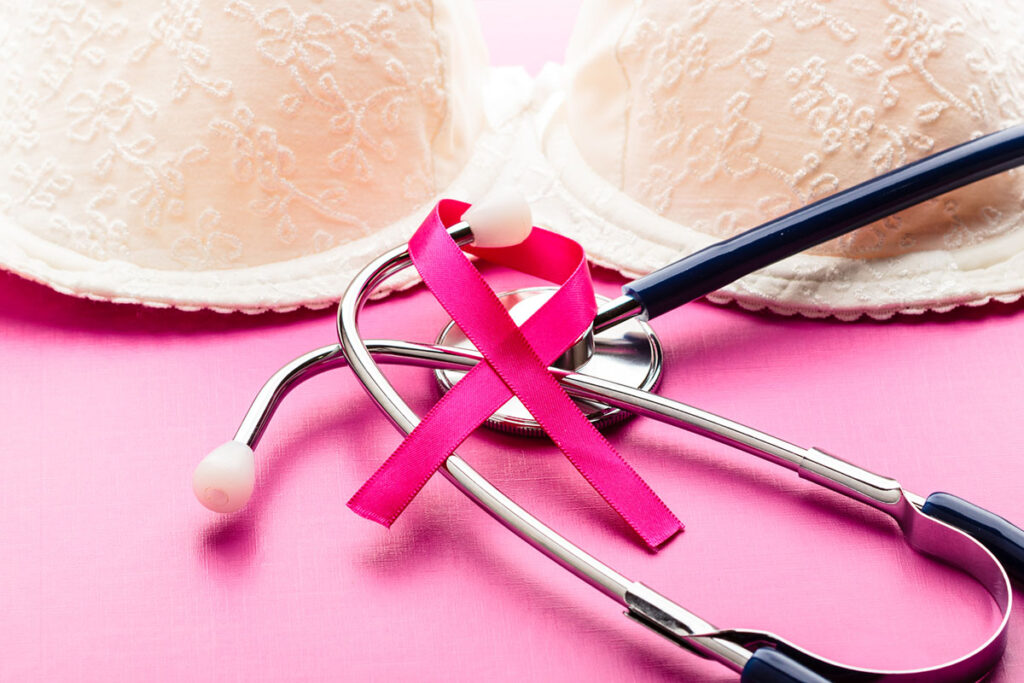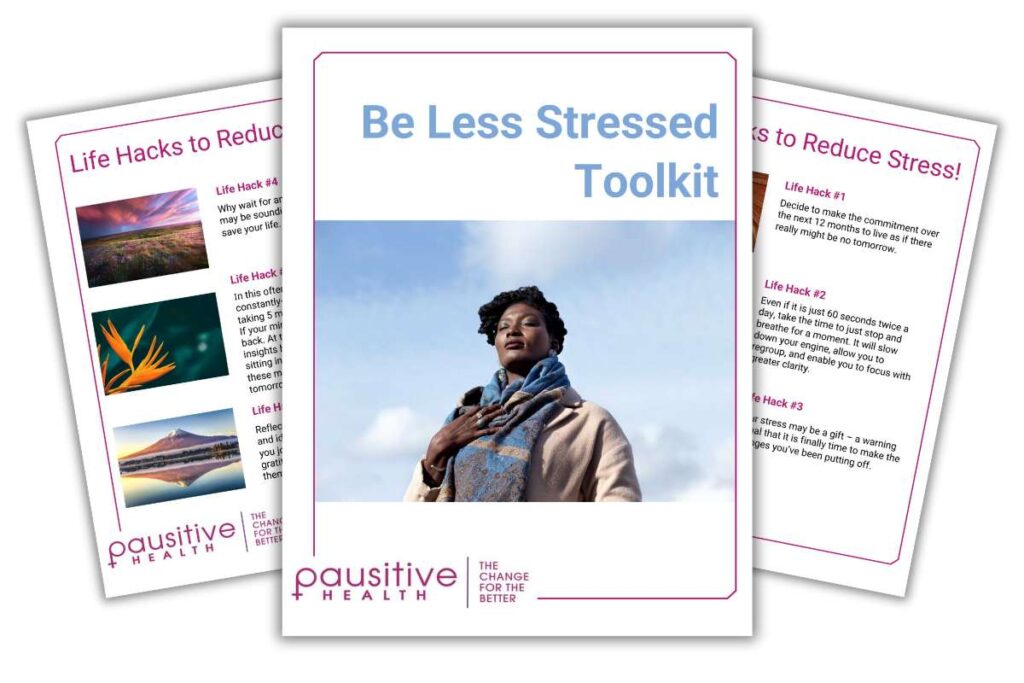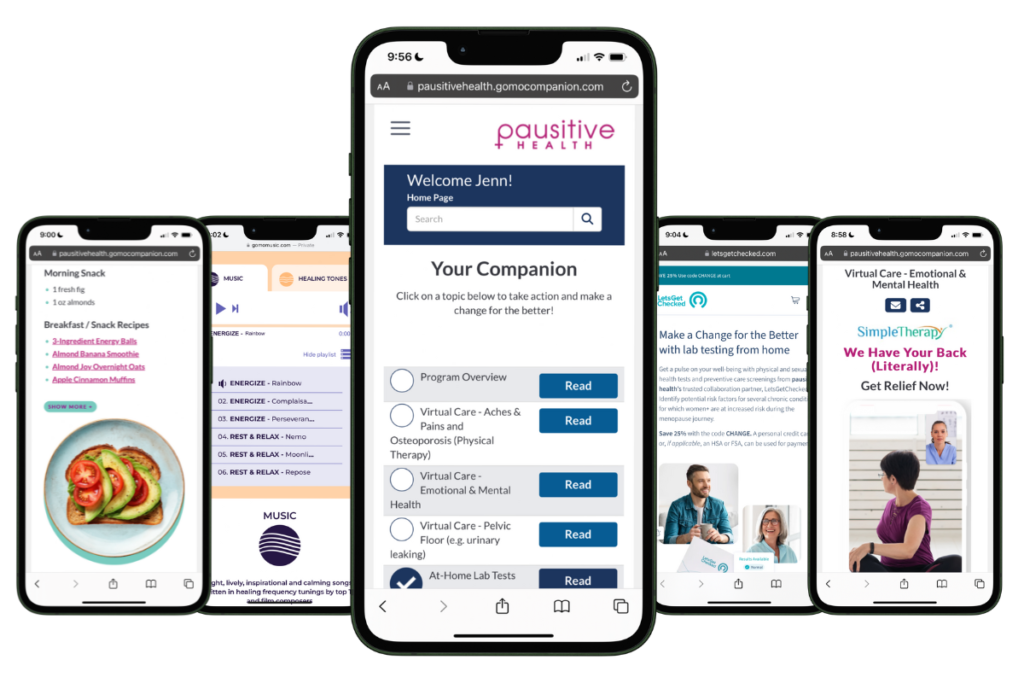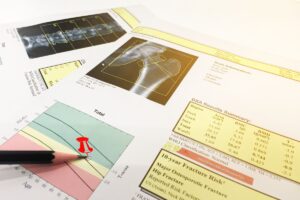How do you feel when you drink alcohol? Is it different than you felt ten years ago? As you age, your body may react differently to alcohol. Your health, life stressors, and medications can also impact how you feel. Research suggests alcohol during and after menopause can lower your risk of certain conditions and increase the risk of others including breast cancer. We’ve reviewed many of the studies and provide information regarding the risks and benefits so you can make an educated decision on drinking alcohol during menopause.
Menopause and alcohol
No matter where you are in the menopause journey (pre-menopause, menopause, or post-menopause), alcohol can have new and profound impacts on your body.
- Why do I get a hot flash when I drink alcohol?
- Why does wine make my face flush?
- Why do I feel hot after a glass of alcohol?
Alcohol may affect you differently during this stage of life, and you may feel the effects more quickly.
It’s not just how much alcohol you drink during menopause that matters, but how much you drank before too. There’s some evidence that drinking, even in your 30’s, can impact when menopause arrives and the effect it has on your health.
While there’s nothing you can do to change the past, you can chart a better path forward by understanding the risks and benefits of drinking alcohol during menopause.
Drinking risks
Here’s what the research shows about alcohol and menopause risks:
- Drinking can increase menopause symptoms like sleeplessness, hot flashes, and weight gain.
- Breast cancer research is most convincing with an increased risk, even for light drinkers.
- Your risk of osteoporosis may be affected by how much you drink in your 20’s and 30’s.

Alcohol and breast cancer
The World Cancer Research Fund believes, “The evidence that alcoholic drinks are a cause of premenopausal and postmenopausal breast cancer is convincing.”
So, what is that risk? The NIH-AARP Diet and Health Study analyzed 184,418 postmenopausal women and found even one glass of alcohol a day increases a woman’s risk for breast cancer.
The study found a 32% increased risk in women who had one or two drinks a day, and a 50% increased risk for women who had three or more alcoholic beverages a day.
It’s believed alcohol can increase estrogen and other hormones, change cells, and affect their growth.
So, drinking even small amounts can increase your risk of breast cancer.
Alcohol and stress
So, you may notice your consumption of alcohol increases. For the first time in your life, you may find yourself abusing alcohol or drinking heavily.

Be Less Stressed
Feeling stressed or overwhelmed? Learn life hacks to reduce stress with the Be Less Stressed toolkit.
"*" indicates required fields
Alcohol and osteoporosis
In postmenopausal women, light-to-moderate drinking has shown beneficial effects on bone mineral density. In the Nurses’ Health Study, women who drank about 7 drinks a week had more bone density than non-drinkers and those who drank less.
Alcohol insomnia
It’s unlikely you’ll know if you’re increasing or decreasing your risk of cancer, osteoporosis, or coronary heart disease when you drink. You will know, though, if alcohol use affects common menopause symptoms like hot flashes and sleeplessness.
According to the National Sleep Foundation, alcohol can impact your ability to get deep sleep. So, you may fall asleep right away but likely will wake up in the middle of the night or rise in the morning feeling groggy or unfocused. So, imagine the complications if you’re already having trouble sleeping due to menopause symptoms and then adding alcohol to the mix.
Focus on good sleep hygiene, which includes day and night techniques to get a better night’s sleep.
Alcohol hot flash
Do you often feel hot after drinking alcohol?
However, alcohol doesn’t always trigger hot flashes or make symptoms worse. Remember, every menopause story is different.
The Midlife Women’s Health Study found moderate drinking is associated with a reduced risk of hot flashes. The study found hot flashes were shorter in duration and took fewer years to peak in severity women for women who had at least 12 drinks in the past year.

Potential benefits of drinking alcohol?
New research from the World Health Organization (WHO) indicates that there is no safe level of alcohol. All alcohol, even small amounts, can impact your health.
While some earlier studies may have pointed to potential beneficial effects of moderate alcohol, this new information raises questions about those studies.
The previous studies suggested that in post-menopausal women, some alcohol consumption increased bone mineral density, enough that it might outweigh the increased risk of breast cancer.
Research also showed alcohol decreased a woman’s risk of coronary heart disease (CHD), the leading cause of death in men and women. For women+ that was potentially good news at the time because a woman’s risk of heart disease increases during the menopause journey.
In the Nurses’ Health Study, rates of death from CHD were lower for women who had one drink a week and even for those who had two drinks a day or more. One drink is considered a 5-ounce glass of wine, a 12-ounce beer, or 1.5 ounces of distilled spirits.
While not explicitly focused on menopausal women, the study examined women age 45-64, so at some point during that age range, the women likely entered menopause. The study evaluated 7,697 men and women and found no differences between age, race, gender, BMI, or cardiovascular risks.
However, the researchers note that follow-up was limited, and the other risks of alcohol should be considered before you start drinking.
currently available evidence cannot indicate the existence of a threshold at which the carcinogenic effects of alcohol “switch on” and start to manifest in the human body.
We cannot talk about a so-called safe level of alcohol use. It doesn’t matter how much you drink – the risk to the drinker’s health starts from the first drop of any alcoholic beverage. The only thing that we can say for sure is that the more you drink, the more harmful it is – or, in other words, the less you drink, the safer it is.”
~ Dr. Carina Ferreira-Borges, acting Unit Lead for Noncommunicable Disease Management and Regional Advisor for Alcohol and Illicit Drugs in the WHO Regional Office for Europe
How much alcohol is too much?
Know your limits and know how much is too much. It may be less than you think.
Heavy alcohol use is drinking more than seven drinks per week or more than 3 drinks on any given night.
Beer, wine, and hard liquor can interact with certain medications. You’ll often find a warning on the packaging if this is the case. It’s not just prescription medications but also some over-the-counter treatments. Look at this list of medicines that can interact with alcohol.
If you drink alcohol, the American Heart Association recommends you keep it moderate. That’s 12 ounces of beer, 4 ounces of wine, or 1.5 ounces of 80-proof spirits for women.
Menopause is a marathon. Symptoms can last decades, so the earlier you train for this natural part of a woman’s life cycle, the better off you’ll be. Focus on alcohol moderation sooner rather than later.
Focus on a healthy lifestyle
Of course, everyone’s risks vary, and these same researchers believe more studies are needed to examine the relationship between alcohol and the human body.
Furthermore, the benefits should not be an excuse to drink, and post-menopausal women are cautioned to interpret the results carefully “…given the diversity of non-drinking control groups, inaccuracies of self-report, and lack of studies in which subjects are randomly assigned to drinking conditions.”
If you enjoy a cocktail or a glass of wine, it doesn’t mean you have to eliminate it. Like every other stage of life, moderation and a focus on an overall healthy lifestyle will optimize the best outcome during menopause and your post-menopausal years.

Free Support
For Your Menopause Journey!
Only available for a limited time!
Access a one-stop menopause journey digital destination that provides personalized text messages that focus on educational topics you select and offers many other features such as a diet assessment with recommendations, solutions from collaboration partners to address menopausal aches and pains (the musculoskeletal syndrome of menopause – MSM), pelvic floor issues, virtual care, lifestyle tools, and a supportive community.
Lew JQ, Freedman ND, Leitzmann MF, Brinton LA, Hoover RN, Hollenbeck AR, Schatzkin A, Park Y. Alcohol and risk of breast cancer by histologic type and hormone receptor status in postmenopausal women: the NIH-AARP Diet and Health Study. Am J Epidemiol. 2009 Aug 1;170(3):308-17. doi: 10.1093/aje/kwp120. Epub 2009 Jun 18. PMID: 19541857; PMCID: PMC2727171.
Moderate drinking increases risk of ER+/PR+ breast cancer | CancerNetwork
4 Insanely Powerful Exercises You Need to Manage Stress | PeopleTweaker
Alcohol and Other Factors Affecting Osteoporosis Risk In Women | National Institute on Alcohol Abuse and Alcoholism
Jang H-D, Hong J-Y, Han K, Lee JC, Shin B-J, Choi S-W, et al. (2017) Relationship between bone mineral density and alcohol intake: A nationwide health survey analysis of postmenopausal women. PLoS ONE 12(6): e0180132. https://doi.org/10.1371/journal.pone.0180132
Aging? How Old Will You Feel 10 Years From Now? | PeopleTweaker
Alcohol and Sleep | Sleep Foundation
Menopause-related hot flashes and night sweats can last for years | Harvard Health Publishing
Ziv-Gal, A., Smith, R.L., Gallicchio, L. et al. The Midlife Women’s Health Study – a study protocol of a longitudinal prospective study on predictors of menopausal hot flashes. womens midlife health 3, 4 (2017). https://doi.org/10.1186/s40695-017-0024-8
Health Issues in Postmenopausal Women Who Drink | National Institute on Alcohol Abuse and Alcoholism
King DE, Mainous AG 3rd, Geesey ME. Adopting moderate alcohol consumption in middle age: subsequent cardiovascular events. Am J Med. 2008 Mar;121(3):201-6. doi: 10.1016/j.amjmed.2007.12.004. PMID: 18328303; PMCID: PMC2287372.
No level of alcohol consumption is safe for our health | World Health Organization
Drinking red wine for heart health? Read this before you toast | American Heart Association
Drink to Your Health at Menopause, or Not? | The Menopause Society
Health Risks of Chronic Heavy Drinking | WebMD
Harmful Interactions | National Institute on Alcohol Abuse and Alcoholism
You may also like…

Osteoporosis 101: Know What To Look For and Foods That Can Help Prevent It
Osteoporosis is often undiagnosed and untreated in post-menopausal women+. It’s not curable, so prevent it with these foods and other lifestyle changes.

How Menopause Impacts Heart Health: 7 Action Steps That Help
Heart health lifestyle habits can help you manage menopause symptoms and help reduce the risk of cardiovascular disease.

Best Foods To Eat To Manage Restless Leg Syndrome (RLS)
Food as medicine. Get a list of the best foods to eat to manage restless leg syndrome (RLS) and avoid triggering it.

